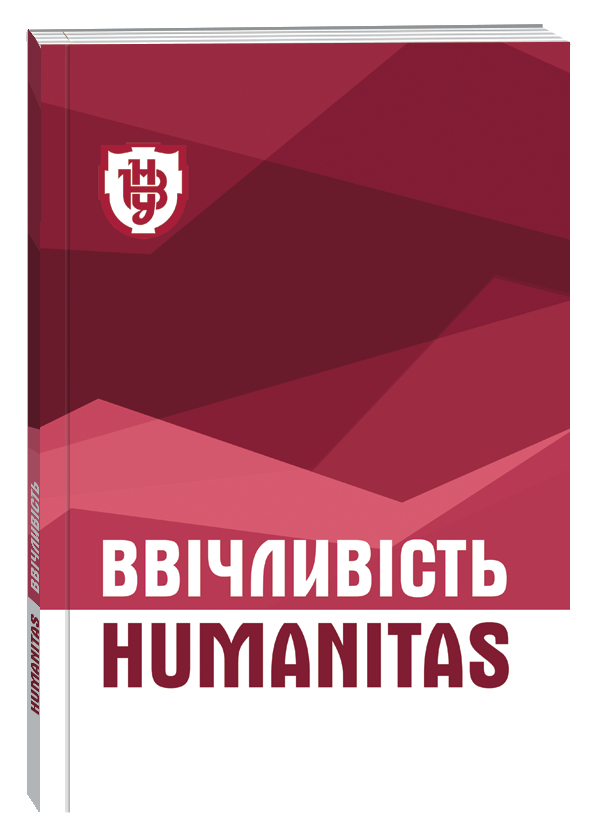DIGITAL COMPETENCE OF OLDER PEOPLE: SPECIFICS, PROFICIENCY CRITERIA AND DEVELOPMENT PROGRAMME
DOI:
https://doi.org/10.32782/humanitas/2023.2.8Keywords:
digital competence, older people, digital literacy, indicators of digital proficiency, components of digital competence, program for developing digital competenceAbstract
The article examines the important role of digital competence in the modern world. The aim of the study is to characterize the specifics of digital competence among the elderly, propose criteria for assessing its formation, and present the content of a program for developing digital competence using the example of clients of the territorial center for social services in the Podilsky district of Poltava city. The methodology includes: document analysis on digital competence, elaboration the programme om its formation, as well as conducting a survey of programme participants (N=360). It is determined that for the older people, digital competence encompasses knowledge, skills, motivation, and responsibility in various internet activities. The competence consists of several components (information and media literacy, communication competence, technical competence, consumer competence). The article also presents key indicators of the formation of digital competence among the older people, including access to technology, basic skills, digital literacy, utilization of digital services, and integration of digital technologies into daily life. The article presents a programme for developing digital competence implemented for clients of the territorial center for social services, consisting of 11 thematic blocks. The conducted survey of programme participants reveals the effectiveness of the elaborated programme and its impact on changing attitudes and skills regarding digital technologies. The research results also confirm the increasing use of computers, the internet, e-services, and social networks among the elderly. The obtained data will contribute to further improving approaches to implementing informal learning programmes for the development of digital competence among the older people.
References
Давиденко Г. Цифрова інклюзія та доступність: соціальна діджиталізація: монографія. Вінниця : ТВОРИ, 2023. 240 с.
Каркач А., Семигіна Т. Зменшення цифрових розривів як складова соціальної роботи з літніми людьми. Ввічливість. Humanitas. 2022. № 3. С. 26–32.
Рашкевич Ю. М. Болонський процес та нова парадигма вищої освіти. Львів : Вид-во Львівської політехніки, 2014.
Семигіна Т. В., Пожидаєва О. В. Формування компетентностей соціальних працівників: міжнародна та локальна практика. Репрезентація освітніх досягнень, мас-медіа та роль філології у сучасній системі наук. Вінниця : Європейська наукова платформа, 2021. URL: https://doi.org/10.36074/rodmmrfssn.ed-1.05
Семигіна T., Рашкевич Ю. Базові поняття системи кваліфікацій у контексті трансформації освітньої парадигми. Репрезентація освітніх досягнень, мас-медіа та роль філології у сучасній системі наук. Вінниця: Європейська наукова платформа, 2021. URL: https://doi.org/10.36074/rodmmrfssn.ed-2.03
Семигіна Т. В., Федюк В. В. Цифрова компетентність як інструмент регулювання ринку праці. Економіка та суспільство, 2022. № 40. URL: https://economyandsociety.in.ua/index.php/journal/article/view/1476
Blažič B. J., Blažič, A. J. Overcoming the digital divide with a modern approach to learning digital skills for the elderly adults. Educ Inf Technol., 2020. № 25. Р. 259–279.
DigComp 2.2: The Digital Competence Framework for Citizens – With new examples of knowledge, skills and attitudes / European Commission, 2022. URL: https://bit.ly/3nbvpR2
Gauthier T. The value of microcredentials: The employer’s perspective. The Journal of Competency Based Education. 2020. Vol. 5(2). P. 1–6.
He T. et al. Social participation of the elderly in China: The roles of conventional media, digital access and social media engagement. Telematics and Informatics. 2020. Vol. 48. P. 101347.
Muratova D. A. Competence and Competency-Based Approach in Education. Indonesian Journal of Innovation Studies. 2022. Vol. 18. URL: https://doi.org/10.21070/ijins.v19i.648
Punie Y., Brecko B., Ferrari A. DIGCOMP: A Framework for Developing and Understanding Digital Competence in Europe. Luxembourg: Publications Office of the European Union, 2013. URL: https://bit.ly/3OHWAyX
Recommendation on the European Qualifications Framework for lifelong learning and repealing the recommendation of the European Parliament and of the Council of 23 April 2008 on the establishment of the European Qualifications Framework for lifelong learning /The Council of the European Union, 2017). URL: https://eur-lex.europa.eu/legal-content/EN/TXT/?uri=CELEX%3A32017H0615(01)
Schlomann A., Even C., Hammann T. How Older Adults Learn ICT–Guided and Self-Regulated Learning in Individuals With and Without Disabilities. Front. Comput. Sci. 2022. Vol. 3. P. 803740.
Winne P. H., Hadwin A. F. Studying as self-regulated learning. The educational psychology series. Metacognition in educational theory and practices (Ed. by D. J. Hacker, J. Dunlosky, & A. C. Greaesser). Lawrence Erlbaum Associates Publishers. 1998. P. 277–304.
Zimmerman, B. J. Self-regulated learning and academic achievement: An overview. Educational Psychologist, 1990Vol. 25(1), 3–17.







